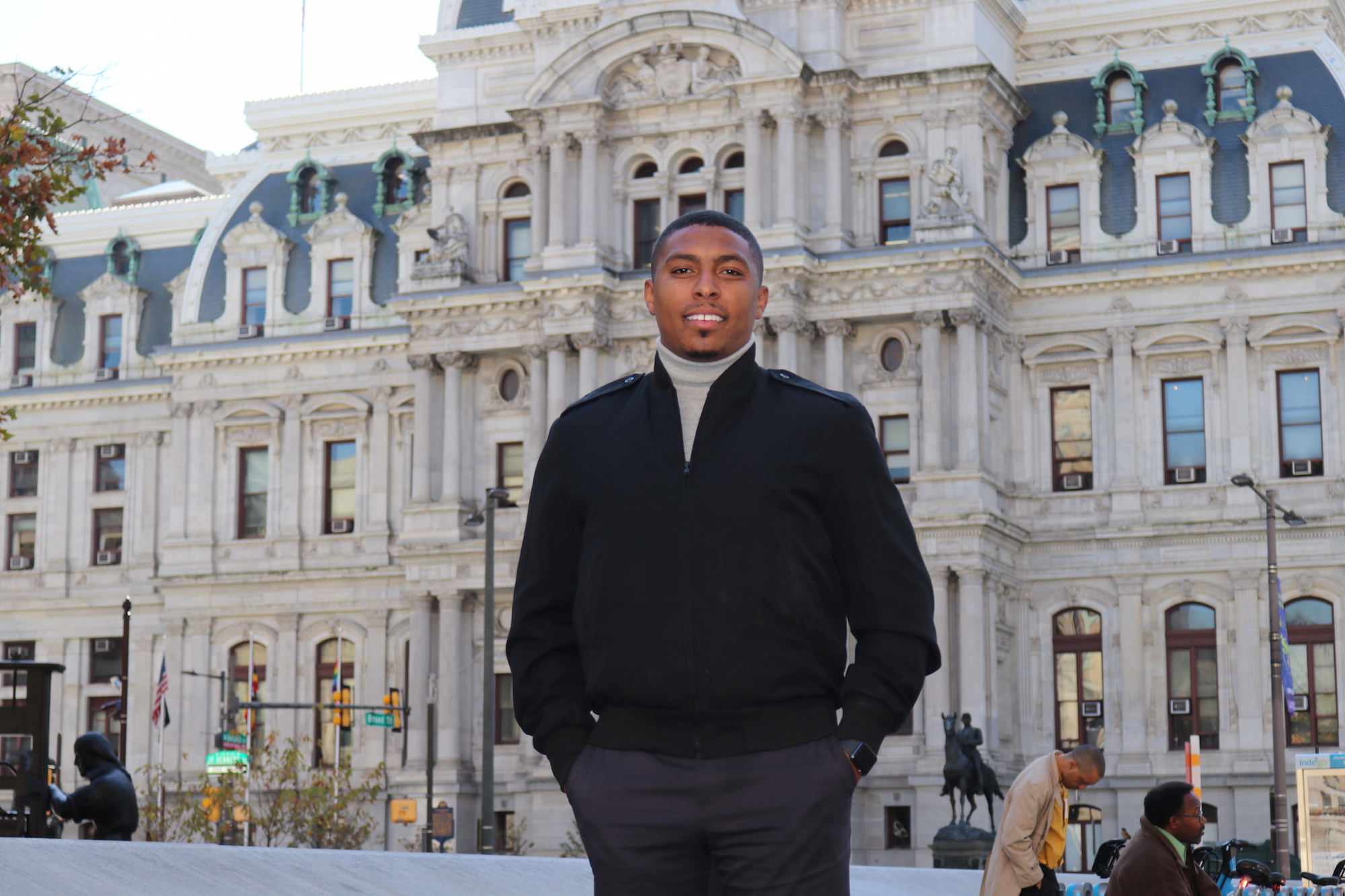
18 neighborhoods in 18 hours: At-large candidate Nicolas O’Rourke deals hope on a tour of Philadelphia
As an organizer and pastor, a label Nicolas O’Rourke hears a lot is “hope dealer.” In this role, it’s his duty to believe in the power of change in government for the benefit of the community. But of late, all O’Rourke’s found in the neighborhoods of Philadelphia is hopelessness when it comes to action on the part of their public officials.
“People do not believe, and why should they?” he said yesterday during an interview in the plaza in front of Philadelphia’s Municipal Services Building in Center City.
With less than two weeks to go before the general election on Nov. 5, O’Rourke is aiming to take his hope dealing across the street as a newly-elected member of City Council so that he can change that narrative.
He is running as one of two at-large candidates from the Working Families Party alongside Kendra Brooks.
Founded as “the people’s platform for a just Philadelphia,” the party is looking to unseat the Republican Party from City Council’s two reserved minority party spots.
This year’s ticket in Philly formed as a coalition of more than 30 organizations and nonprofits from across the city. The party’s progressive agenda focuses on achieving more affordable housing, a $15 minimum wage and more investment in schools, among other goals.
So far, Kendra Brooks has been the face of the party, but on Oct. 24 O’Rourke hit the streets for a little more than 18 hours to further the party’s grassroots approach and put his name on people’s radars.
At the time of his interview near City Hall at midday on Thursday afternoon, O’Rourke was only a third of the way through his “18 neighborhoods in 18 hours” trek.
His day started at 6:30 a.m. at the Fern Rock Transportation Center and ended around 1 a.m. Friday morning at Copabanana, a popular bar in University City.
In between, the stops were primarily small businesses, ranging from coffee shops and restaurants to bars and auditoriums.
The day also included a walking tour of Kensington, a fundraiser in Southwest Philly, and a visit to the Philadelphia International Airport.
O’Rourke’s end goal with the campaign is to organize enough power to propel him into office, but Thursday’s effort sat at the base of the process.
“The building blocks of that power first start with relationships,” he said.
Those relationships begin with one-on-one interactions.
“You have to get out there and you have to have conversation,” said O’Rourke.
Although admitting to not wanting to be cliché, O’Rourke said the message of the day to potential voters was that he and Brooks are not politicians.
And the platform they are fighting to advance is real.
One of those core issues for both Brooks and O’Rourke is a $15-an-hour minimum wage. In the past, O’Rourke marched alongside many of the unions representing low wage workers from Hahnemann to the airport. The campaign has also partnered with many of these local unions in the city that share its mission.
“This is deeply immoral when you have the poorest big city in the country...and we’re surrounded by affluence, and we can’t be just enough to pay people what they’re worth?” said O’Rourke.
CONTENIDO RELACIONADO
It’s also personal. Growing up in Philadelphia, O’Rourke’s parents were both working class professionals. His mother was a telephone operator before driving for public transit and his father held jobs as a truck driver, electrician and janitor throughout his career.
“That is my worldview,” he said.
Earlier in the day, O’Rourke encountered a business owner at Olney Transportation Center who told him of his struggles to make ends meet because “people don’t have any money.”
“So you’re saying to me, if people had more money then business would be better?” O’Rourke asked the man.
“Yes,” the man replied.
“So we should pay people more money?” said O’Rourke.
“Yes,” said the man.
The issue for the city is a little more complicated than O’Rourke’s conversation because under PA law, Philadelphia City Council alone cannot raise its minimum wage.
However, in the meantime, O’Rourke mentioned negotiating with large employers in the city to raise their own minimum wages and enacting policies that reduce housing costs across the city to free up more income.
The current disenchantment may be pervasive. But if O’Rourke’s message reached as many as it was supposed to on Thursday, then many more now know that there’s at least a few who — as he says — still “give a damn.”
“People only have the capacity for so much,” he said. “Before someone tells them another thing, they’d rather see it.”










DEJE UN COMENTARIO: